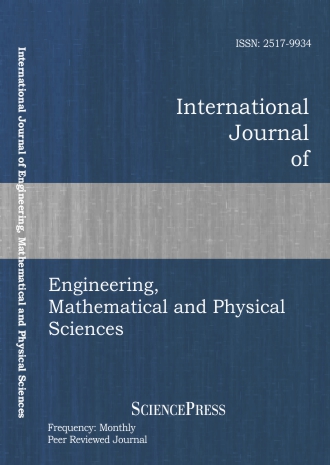
Scholarly
Volume:4, Issue: 9, 2010 Page No: 1288 - 1294
International Journal of Engineering, Mathematical and Physical Sciences
ISSN: 2517-9934
1256 Downloads
A Mahalanobis Distance-based Diversification and Nelder-Mead Simplex Intensification Search Scheme for Continuous Ant Colony Optimization
Ant colony optimization (ACO) and its variants are applied extensively to resolve various continuous optimization problems. As per the various diversification and intensification schemes of ACO for continuous function optimization, researchers generally consider components of multidimensional state space to generate the new search point(s). However, diversifying to a new search space by updating only components of the multidimensional vector may not ensure that the new point is at a significant distance from the current solution. If a minimum distance is not ensured during diversification, then there is always a possibility that the search will end up with reaching only local optimum. Therefore, to overcome such situations, a Mahalanobis distance-based diversification with Nelder-Mead simplex-based search scheme for each ant is proposed for the ACO strategy. A comparative computational run results, based on nine nonlinear standard test problems, confirms that the performance of ACO is improved significantly with the integration of the proposed schemes in the ACO.
Authors:
References:
[1] I. Mukherjee, and P.K. Ray, "A review of Optimization Techniques in